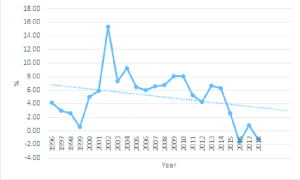Nigerian Regulator Approves Four Major Oil Divestments, Rejects One
The Nigerian oil sector has seen a significant shift as the Nigerian Upstream Petroleum Regulatory Commission (NUPRC) approved four major oil divestments. In contrast, it rejected Shell’s proposed sale of its onshore assets. This decision is crucial for Nigeria’s energy landscape and reflects ongoing reforms aimed at enhancing the sector.

Gbenga Komolafe, CEO of NUPRC, made this announcement during the launch of “Project 1 Million Barrels of Oil Per Day” in Abuja. This initiative aims to boost Nigeria’s oil production and attract foreign investments. The approved transactions involve major international oil companies like ExxonMobil and TotalEnergies, indicating a strategic shift in operations.
Among the approved deals are:
- ExxonMobil’s divestment of Mobil Producing Nigeria Unlimited to Seplat Energy.
- Equinor’s sale to Project Odinmin Investments.
- Nigerian Agip Oil Company’s transfer to Oando Petroleum.
- TotalEnergies’ agreement with Telema Energies.
Each transaction received ministerial consent, marking a significant step for these companies as they navigate Nigeria’s complex regulatory environment.

In stark contrast, Shell’s attempt to divest its onshore and shallow-water operations to Renaissance Africa Energy faced regulatory hurdles. The proposed deal, valued at about $2.4 billion, did not meet NUPRC compliance standards. Komolafe emphasized that while divestment is common globally, it must adhere to regulations that protect national interests.
This rejection presents challenges for Shell as it aims to focus on deepwater operations where it holds strategic advantages. The company has struggled with its onshore assets due to sabotage and environmental issues. Consequently, the desire to exit these operations has intensified. However, this recent setback forces Shell to reevaluate its strategy in Nigeria.

The approval of the other four divestments signals a positive trend for foreign investment in Nigeria’s oil sector. It demonstrates the government’s commitment to creating a business-friendly environment while ensuring regulatory compliance. The NUPRC has made significant strides in establishing robust guidelines under the Petroleum Industry Act (PIA), aiming for transparency and efficiency.
Industry experts view these developments as vital for Nigeria’s economic recovery and growth. The approved transactions are expected to inject capital into the sector and potentially increase production levels. This aligns with Nigeria’s broader goals of enhancing oil output amid fluctuating global prices.
Moreover, this situation underscores the importance of regulatory compliance in attracting foreign investments. As companies navigate Nigeria’s oil sector complexities, adhering to local laws becomes essential for success. The NUPRC’s rigorous evaluation process reflects a growing emphasis on accountability within the industry.

As Nigeria continues to face challenges in its oil sector—such as declining production rates and infrastructure deficits—these recent approvals may provide much-needed momentum. The government’s proactive approach in facilitating divestments while maintaining oversight could serve as a model for other sectors facing similar challenges.
In conclusion, the Nigerian regulator’s decision to approve four major oil divestments while rejecting Shell’s proposed sale highlights a critical juncture in energy sector reforms. Stakeholders now await further developments on how these changes will impact Nigeria’s oil production capabilities and overall economic landscape.

